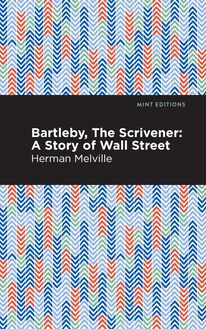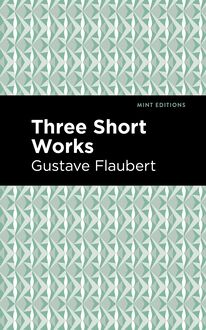-
 Univers
Univers
-
 Ebooks
Ebooks
-
 Livres audio
Livres audio
-
 Presse
Presse
-
 Podcasts
Podcasts
-
 BD
BD
-
 Documents
Documents
-
- Cours
- Révisions
- Ressources pédagogiques
- Sciences de l’éducation
- Manuels scolaires
- Langues
- Travaux de classe
- Annales de BEP
- Etudes supérieures
- Maternelle et primaire
- Fiches de lecture
- Orientation scolaire
- Méthodologie
- Corrigés de devoir
- Annales d’examens et concours
- Annales du bac
- Annales du brevet
- Rapports de stage
La lecture à portée de main
Vous pourrez modifier la taille du texte de cet ouvrage
Découvre YouScribe en t'inscrivant gratuitement
Je m'inscrisDécouvre YouScribe en t'inscrivant gratuitement
Je m'inscrisEn savoir plus
Vous pourrez modifier la taille du texte de cet ouvrage
En savoir plus

Description
In a German Pension captures the youthful views of esteemed writer, Katherine Mansfield, who jumpstarted her illustrious career with a series of remarkable short stories. It showcases her growth and scope as a formidable nineteenth century writer.
A captivating collection of short stories centering the cynical and superficial parts of human nature. In one instance, an expectant father frets over his surroundings, while his wife gives birth. Another tale highlights a society woman’s obsession with fashion and perception, while another woman is fixated on her husband’s stomach. Each story presents a satirical view of German people and culture from the early 1900s.
In a German Pension was a commercial success that quickly ran through multiple editions. It was an impressive starting point to an acclaimed career, filled with masterful modernist tales. This collection is a testament to Mansfield’s unique voice and storytelling ability.
With an eye-catching new cover, and professionally typeset manuscript, this edition of In a German Pension is both modern and readable.
Sujets
Informations
| Publié par | Mint Editions |
| Date de parution | 01 février 2021 |
| Nombre de lectures | 0 |
| EAN13 | 9781513276205 |
| Langue | English |
| Poids de l'ouvrage | 1 Mo |
Informations légales : prix de location à la page 0,0350€. Cette information est donnée uniquement à titre indicatif conformément à la législation en vigueur.
Extrait
In a German Pension
Katherine Mansfield
In a German Pension was first published in 1911.
This edition published by Mint Editions 2020.
ISBN 9781513271200 | E-ISBN 9781513276205
Published by Mint Editions®
minteditionbooks .com
Publishing Director: Jennifer Newens
Design & Production: Rachel Lopez Metzger
Project Manager: Micaela Clark
Typesetting: Westchester Publishing Services
C ONTENTS G ERMANS AT M EAT T HE B ARON T HE S ISTER OF THE B ARONESS F RAU F ISCHER F RAU B RECHENMACHER A TTENDS A W EDDING T HE M ODERN S OUL A T “L EHMANN ’ S ” T HE L UFT B AD A B IRTHDAY T HE C HILD -W HO -W AS -T IRED T HE A DVANCED L ADY T HE S WING OF THE P ENDULUM A B LAZE
G ERMANS AT M EAT
B read soup was placed upon the table.
“Ah,” said the Herr Rat, leaning upon the table as he peered into the tureen, “that is what I need. My ‘magen’ has not been in order for several days. Bread soup, and just the right consistency. I am a good cook myself”—he turned to me.
“How interesting,” I said, attempting to infuse just the right amount of enthusiasm into my voice.
“Oh yes—when one is not married it is necessary. As for me, I have had all I wanted from women without marriage.” He tucked his napkin into his collar and blew upon his soup as he spoke. “Now at nine o’clock I make myself an English breakfast, but not much. Four slices of bread, two eggs, two slices of cold ham, one plate of soup, two cups of tea—that is nothing to you.”
He asserted the fact so vehemently that I had not the courage to refute it.
All eyes were suddenly turned upon me. I felt I was bearing the burden of the nation’s preposterous breakfast—I who drank a cup of coffee while buttoning my blouse in the morning.
“Nothing at all,” cried Herr Hoffmann from Berlin. “Ach, when I was in England in the morning I used to eat.”
He turned up his eyes and his moustache, wiping the soup drippings from his coat and waistcoat.
“Do they really eat so much?” asked Fr ä ulein Stiegelauer. “Soup and baker’s bread and pig’s flesh, and tea and coffee and stewed fruit, and honey and eggs, and cold fish and kidneys, and hot fish and liver? All the ladies eat, too, especially the ladies.”
“Certainly. I myself have noticed it, when I was living in a hotel in Leicester Square,” cried the Herr Rat. “It was a good hotel, but they could not make tea—now—”
“Ah, that’s one thing I can do,” said I, laughing brightly. “I can make very good tea. The great secret is to warm the teapot.”
“Warm the teapot,” interrupted the Herr Rat, pushing away his soup plate. “What do you warm the teapot for? Ha! ha! that’s very good! One does not eat the teapot, I suppose?”
He fixed his cold blue eyes upon me with an expression which suggested a thousand premeditated invasions.
“So that is the great secret of your English tea? All you do is to warm the teapot.”
I wanted to say that was only the preliminary canter, but could not translate it, and so was silent.
The servant brought in veal, with “sauerkraut” and potatoes.
“I eat sauerkraut with great pleasure,” said the Traveller from North Germany, “but now I have eaten so much of it that I cannot retain it. I am immediately forced to—”
“A beautiful day,” I cried, turning to Fr ä ulein Stiegelauer. “Did you get up early?”
“At five o’clock I walked for ten minutes in the wet grass. Again in bed. At half-past five I fell asleep, and woke at seven, when I made an ‘overbody’ washing! Again in bed. At eight o’clock I had a cold-water poultice, and at half past eight I drank a cup of mint tea. At nine I drank some malt coffee, and began my ‘cure.’ Pass me the sauerkraut, please. You do not eat it?”
“No, thank you. I still find it a little strong.”
“Is it true,” asked the Widow, picking her teeth with a hairpin as she spoke, “that you are a vegetarian?”
“Why, yes; I have not eaten meat for three years.”
“Im—possible! Have you any family?”
“No.”
“There now, you see, that’s what you’re coming to! Who ever heard of having children upon vegetables? It is not possible. But you never have large families in England now; I suppose you are too busy with your suffragetting. Now I have had nine children, and they are all alive, thank God. Fine, healthy babies—though after the first one was born I had to—”
“How wonderful! ” I cried.
“Wonderful,” said the Widow contemptuously, replacing the hairpin in the knob which was balanced on the top of her head. “Not at all! A friend of mine had four at the same time. Her husband was so pleased he gave a supper-party and had them placed on the table. Of course she was very proud.”
“Germany,” boomed the Traveller, biting round a potato which he had speared with his knife, “is the home of the Family.”
Followed an appreciative silence.
The dishes were changed for beef, red currants and spinach. They wiped their forks upon black bread and started again.
“How long are you remaining here?” asked the Herr Rat.
“I do not know exactly. I must be back in London in September.”
“Of course you will visit M ü nchen?”
“I am afraid I shall not have time. You see, it is important not to break into my ‘cure.’”
“But you must go to M ü nchen. You have not seen Germany if you have not been to M ü nchen. All the Exhibitions, all the Art and Soul life of Germany are in M ü nchen. There is the Wagner Festival in August, and Mozart and a Japanese collection of pictures—and there is the beer! You do not know what good beer is until you have been to M ü nchen. Why, I see fine ladies every afternoon, but fine ladies, I tell you, drinking glasses so high.” He measured a good washstand pitcher in height, and I smiled.
“If I drink a great deal of M ü nchen beer I sweat so,” said Herr Hoffmann. “When I am here, in the fields or before my baths, I sweat, but I enjoy it; but in the town it is not at all the same thing.”
Prompted by the thought, he wiped his neck and face with his dinner napkin and carefully cleaned his ears.
A glass dish of stewed apricots was placed upon the table.
“Ah, fruit!” said Fr ä ulein Stiegelauer, “that is so necessary to health. The doctor told me this morning that the more fruit I could eat the better.”
She very obviously followed the advice.
Said the Traveller: “I suppose you are frightened of an invasion, too, eh? Oh, that’s good. I’ve been reading all about your English play in a newspaper. Did you see it?”
“Yes.” I sat upright. “I assure you we are not afraid.”
“Well, then, you ought to be,” said the Herr Rat. “You have got no army at all—a few little boys with their veins full of nicotine poisoning.”
“Don’t be afraid,” Herr Hoffmann said. “We don’t want England. If we did we would have had her long ago. We really do not want you.”
He waved his spoon airily, looking across at me as though I were a little child whom he would keep or dismiss as he pleased.
“We certainly do not want Germany,” I said.
“This morning I took a half bath. Then this afternoon I must take a knee bath and an arm bath,” volunteered the Herr Rat; “then I do my exercises for an hour, and my work is over. A glass of wine and a couple of rolls with some sardines—”
They were handed cherry cake with whipped cream.
“What is your husband’s favourite meat?” asked the Widow.
“I really do not know,” I answered.
“You really do not know? How long have you been married?”
“Three years.”
“But you cannot be in earnest! You would not have kept house as his wife for a week without knowing that fact.”
“I really never asked him; he is not at all particular about his food.”
A pause. They all looked at me, shaking their heads, their mouths full of cherry stones.
“No wonder there is a repetition in England of that dreadful state of things in Paris,” said the Widow, folding her dinner napkin. “How can a woman expect to keep her husband if she does not know his favourite food after three years?”
“Mahlzeit!”
“Mahlzeit!”
I closed the door after me.
T HE B ARON
“ W ho is he?” I said. “And why does he sit always alone, with his back to us, too?”
“Ah!” whispered the Frau Oberregierungsrat, “he is a Baron .”
She looked at me very solemnly, and yet with the slightest possible contempt—a “fancy-not-recognising-that-at-the-first-glance” expression.
“But, poor soul, he cannot help it,” I said. “Surely that unfortunate fact ought not to debar him from the pleasures of intellectual intercourse.”
If it had not been for her fork I think she would have crossed herself.
“Surely you cannot understand. He is one of the First Barons.”
More than a little unnerved, she turned and spoke to the Frau Doktor on her left.
“My omelette is empty— empty ,” she protested, “and this is the third I have tried!”
I looked at the First of the Barons. He was eating salad—taking a whole lettuce leaf on his fork and absorbing it slowly, rabbit-wise—a fascinating process to watch.
Small and slight, with scanty black hair and beard and yellow-toned complexion, he invariably wore black serge clothes, a rough linen shirt, black sandals, and the largest black-rimmed spectacles that I had ever seen.
The Herr Oberlehrer, who sat opposite me, smiled benignantly.
“It must be very interesting for you, gn ä dige Frau, to be able to watch… of course this is a very fine house . There was a lady from the Spanish Court here in the summer; she had a liver. We often spoke together.”
I looked gratified and humble.
“Now, in England, in your ‘boarding ’ouse’, one does not find the First Class, as in Germany.”
“No, indeed,” I replied, still hypnotised by the Baron, who looked like a little yellow silkworm.
“The Baron comes every year,” went on the Herr Oberlehrer, “for his nerves. He has never spoken to any of the guests— yet .” A smile crossed his face. I seemed to see his visions of some splendid upheaval of that silence—a dazzling exchange of courtesies in a dim future, a splendid sacrifice of a newspaper to this Exalted One, a “danke sch ö n” to be handed down to future generations.
At that moment the postman, looking like a German a
-
 Univers
Univers
-
 Ebooks
Ebooks
-
 Livres audio
Livres audio
-
 Presse
Presse
-
 Podcasts
Podcasts
-
 BD
BD
-
 Documents
Documents
-
Jeunesse
-
Littérature
-
Ressources professionnelles
-
Santé et bien-être
-
Savoirs
-
Education
-
Loisirs et hobbies
-
Art, musique et cinéma
-
Actualité et débat de société
-
Jeunesse
-
Littérature
-
Ressources professionnelles
-
Santé et bien-être
-
Savoirs
-
Education
-
Loisirs et hobbies
-
Art, musique et cinéma
-
Actualité et débat de société
-
Actualités
-
Lifestyle
-
Presse jeunesse
-
Presse professionnelle
-
Pratique
-
Presse sportive
-
Presse internationale
-
Culture & Médias
-
Action et Aventures
-
Science-fiction et Fantasy
-
Société
-
Jeunesse
-
Littérature
-
Ressources professionnelles
-
Santé et bien-être
-
Savoirs
-
Education
-
Loisirs et hobbies
-
Art, musique et cinéma
-
Actualité et débat de société
- Cours
- Révisions
- Ressources pédagogiques
- Sciences de l’éducation
- Manuels scolaires
- Langues
- Travaux de classe
- Annales de BEP
- Etudes supérieures
- Maternelle et primaire
- Fiches de lecture
- Orientation scolaire
- Méthodologie
- Corrigés de devoir
- Annales d’examens et concours
- Annales du bac
- Annales du brevet
- Rapports de stage




















